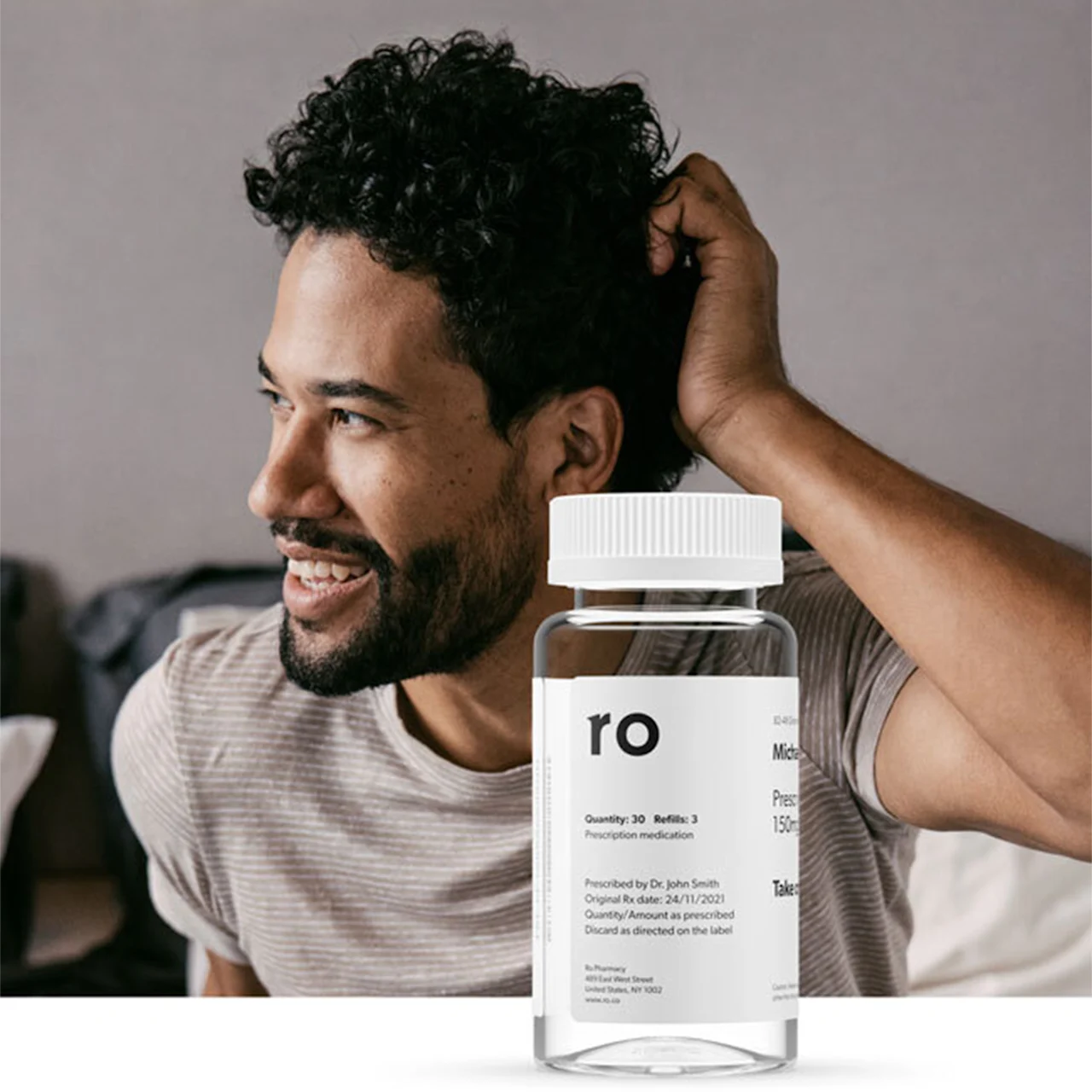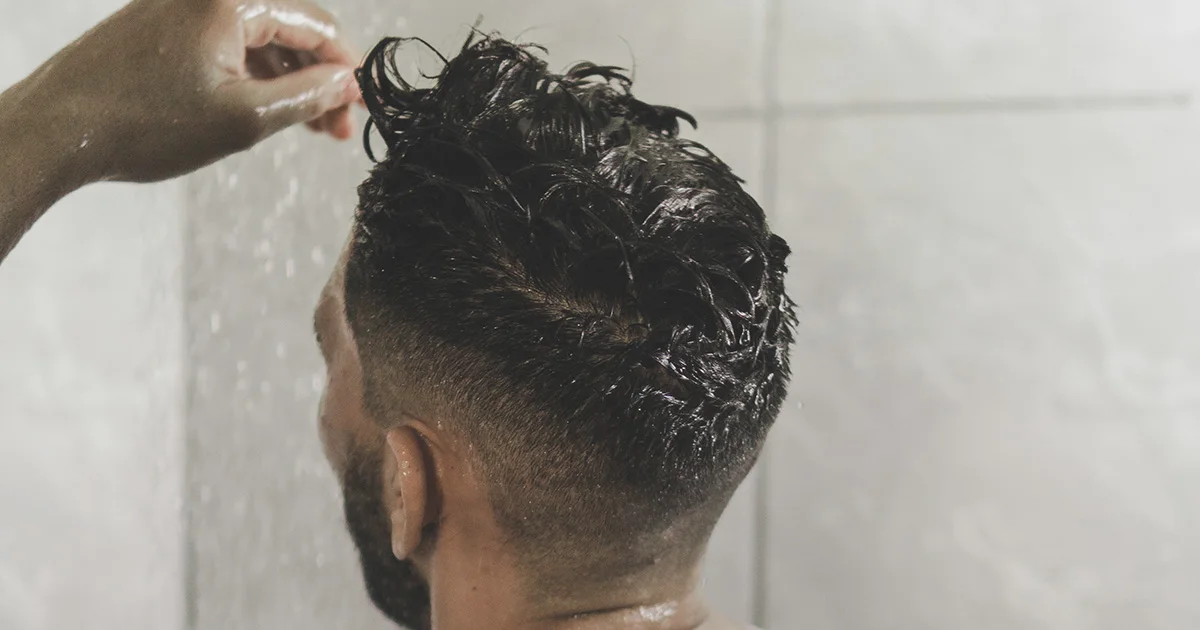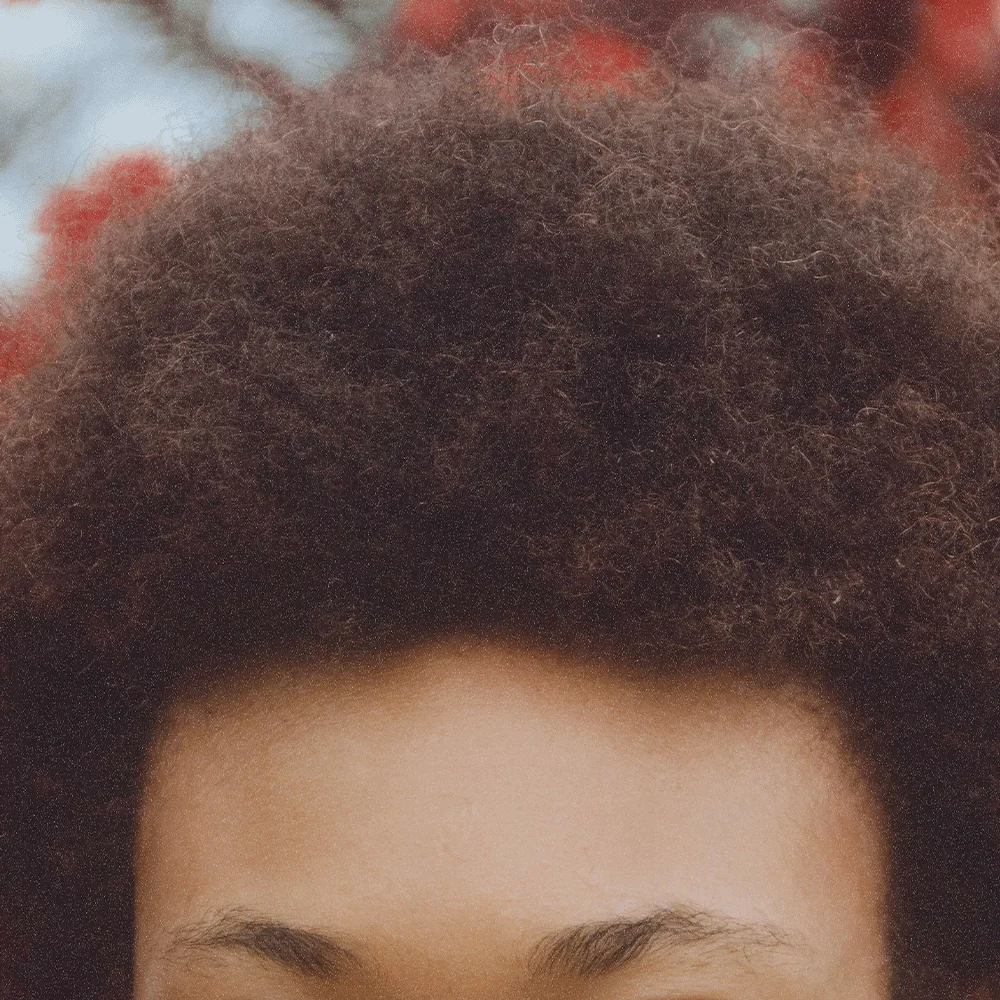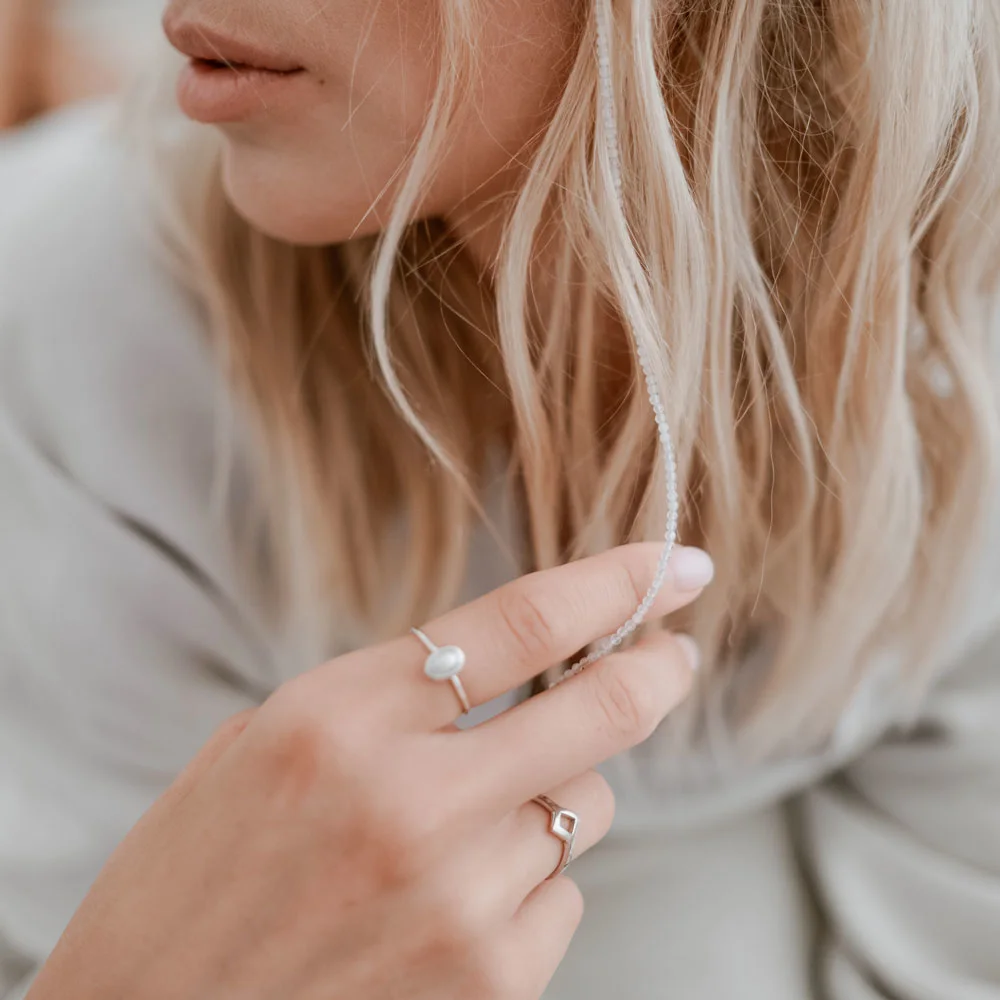Foods that cause hair loss: what to know

Reviewed by Raagini Yedidi, MD,
Written by Ashley Braun, RD, MPH
last updated: Apr 08, 2022
5 min read
Here's what we'll cover
It can be pretty distressing to start noticing your hairline receding or patches of hair missing. We all lose some hair every day, but when that builds up, it can be noticeable and upsetting for some—leading many people to look for any way to stop hair loss in its tracks. If you’ve wondered about foods that cause hair loss, keep reading to understand the connection between diet and hair.
Are there foods that cause hair loss?
There isn’t scientific evidence that any specific foods cause hair loss. Still, the foods you eat influence your overall health and well-being, so your diet may impact your scalp’s health and, by extension, hair growth.
Not getting enough protein and micronutrients (vitamins and minerals) can interfere with hair health. And eating too much of other nutrients could increase the chances of hair loss (Almohanna, 2019).
Many different factors influence hair loss, and diet is probably low on the list of factors. Things like age, genetics, stress, medical conditions, and family history have a much bigger impact than diet on whether or not you experience hair loss.
The form of hair loss you experience can change based on those factors. For example, it could be all over hair loss or patchy spots. A few hair loss conditions include androgenetic alopecia (often called male pattern baldness or female pattern baldness), alopecia areata, and telogen effluvium. It’s not clear that diet influences any of these hair loss conditions.
Still, some diet and lifestyle changes could help slow or prevent some types of hair loss.
How to prevent hair loss: 6 tips
There’s no way to fully prevent balding, especially if you’re genetically predisposed to lose your hair. Some lifestyle changes could have an impact on slowing down hair loss, though. Here are six tips that may help.
1. Limit simple carbs and sugary foods
We all enjoy sugary treats from time to time—as we should! But eating a diet that’s very high in sugar and simple carbohydrates can negatively impact multiple areas of health, including hair follicles. So, it’s important to be mindful of how big a role sugar plays in your diet.
A 2016 study found that eating too much sugar and high-glycemic index foods were associated with hair loss. They found that eating simple sugars can increase sebum (oil) production, which may lead to irritation and inflammation in the scalp (Goluch-Koniuszy, 2016).
A diet high in simple carbohydrates can also increase the risk for higher insulin levels. High insulin and blood sugar levels may lead to changes in blood vessels, which could cause less blood to flow to the scalp, reducing the number of nutrients delivered to the scalp (Goluch-Koniuszy, 2016).
2. Avoid fish high in mercury
Fish are an excellent source of healthy omega-3 fatty acids, protein, and other nutrients. However, mercury can build up in some types of fish, potentially leading to high mercury levels in people who eat a lot of those types of fish.
Swordfish, marlin, king mackerel, ahi tuna, bigeye tuna, and shark are just some of the fish that tend to be high in mercury.
A 2019 case study evaluated the effects of mercury on two women who were experiencing hair loss. The study found an association between the mercury levels in their blood with the severity of their hair loss. The women found lowering fish consumption and blood mercury levels reversed their hair loss (Peters, 2019).
Of course, those are just two examples, so we can’t say for sure that there’s any real connection between mercury levels and hair loss. But limiting how much mercury you take in is probably not a bad idea anyway.
3. Limit fried foods
Fried foods are high in saturated fats. Research suggests that high-fat foods, like fried foods, can influence oil production and increase the number of free radicals—small compounds that can damage cells—in the body (Rajput, 2010).
The study’s authors suggested that eating fewer fried foods could help prevent your scalp from producing too much oil, though we need more research to say this for sure (Rajput, 2010).
4. Avoid restrictive diets
A very low-calorie diet or restricting too many foods could contribute to hair loss. A 2018 review of research included a study suggesting that “crash diets” that resulted in weight loss between 25–52 pounds within 2–5 months were associated with hair loss (Almohanna, 2019).
While the researchers weren’t sure exactly what caused that hair loss, they suggested it could have been related to insufficient energy to support hair growth.
5. Limit selenium intake
Selenium is a mineral found in whole grains, red meat, poultry, fish, and eggs. We only need a small amount of selenium, so most of us get enough from our diets.
Some people take supplements containing selenium, though. In rare cases, this can lead to selenium toxicity, linked to hair loss and other symptoms (MacFarquhar, 2010).
6. Watch out for vitamin A toxicity
Vitamin A is a fat-soluble vitamin, which means it can be stored in fat. Vitamin A levels typically only get too high if taking large doses of supplements daily, but if you’re taking too much, vitamin A toxicity can cause symptoms like hair loss (Almohanna, 2019).
Lifestyle changes to slow hair loss
In addition to making changes to your diet, other lifestyle changes could help slow down or prevent hair loss. Here are some tips to help slow hair loss:
Eat a healthy, balanced diet: Getting enough nutrient-rich foods like protein, omega-3 fatty acids, vitamin E, vitamin C, biotin, folate, and other B vitamins may help support hair growth (Goluch-Koniuszy, 2019). Try to eat a balance of fruits, vegetables, lean proteins, whole grains, antioxidants, and healthy fats.
Quit smoking: Nicotine can lead to hair loss by decreasing blood flow to hair follicles, which can cause your scalp not to get the nutrients it needs for hair growth. Tobacco products may also lead to free radicals building up, causing damage to hair roots (Rajput, 2010).
Reduce stress: High stress levels are associated with hair loss, so finding ways to lower and manage your stress could help prevent some hair loss (Yi, 2020). Stress management techniques include meditation, deep breathing exercises, listening to music, counseling, walking, exercise, connecting with other people, and other hobbies you enjoy.
Avoid hair damaging products and tools: Some hair care products and styling tools are more damaging to hair. Research suggests people who use blow dryers, straighteners, curling iron, perming, and coloring are more likely to have hair damage like fraying, splitting, and breakages (Malkani, 2020). Consider limiting hot tools and products that could damage hair and using heat protectants when using hot tools.
Avoid hairstyles that pull on hair: Research suggests ponytail hairstyles may increase the tension and pressure on the scalp and hair follicles. They found these hairstyles increased the risk of hair loss (Yi, 2020).
Get enough sleep: Sleep impacts nearly every area of your health. Research suggests not getting enough quality sleep increases the risk of female pattern hair loss (Yi, 2020). You may be able to improve your sleep quality by following some sleep hygiene tips like going to bed and waking up at the same time each day and sleeping in a dark, cool, quiet room.
Your diet and lifestyle play important roles in your overall health, so they could impact your hair growth as well. The most important thing is to eat a balanced and nutrient-rich diet and to live a healthy and active lifestyle. And if your hair loss is bothersome, there are treatments available.
DISCLAIMER
If you have any medical questions or concerns, please talk to your healthcare provider. The articles on Health Guide are underpinned by peer-reviewed research and information drawn from medical societies and governmental agencies. However, they are not a substitute for professional medical advice, diagnosis, or treatment.
Almohanna, H. M., Ahmed, A. A., Tsatalis, J. P., & Tosti, A. (2019). The role of vitamins and minerals in hair loss: a review. Dermatology and Therapy , 9 (1), 51–70. doi:10.1007/s13555-018-0278-6. Retrieved from https://www.ncbi.nlm.nih.gov/pmc/articles/PMC6380979/
Goluch-Koniuszy, Z. S. (2016). Nutrition of women with hair loss problem during the period of menopause. Menopause Review , 15 (1), 56–61. doi:10.5114/pm.2016.58776. Retrieved from https://www.ncbi.nlm.nih.gov/pmc/articles/PMC4828511/
MacFarquhar, J. K., Broussard, D. L., Melstrom, P., et al. (2010). Acute selenium toxicity associated with a dietary supplement. Archives of Internal Medicine , 170 (3), 256–261. doi:10.1001/archinternmed.2009.495. Retrieved from https://pubmed.ncbi.nlm.nih.gov/20142570/
Malkani, R. H., Shirolikar, S. M., Karmakar, S., & Setia, M. S. (2020). Hair styling procedures and hair morphology: A clinico-microscopic comparison study. Indian Dermatology Online Journal, 11 (4): 551-558. doi:10.4103/idoj.IDOJ_452_19. Retrieved from https://www.ncbi.nlm.nih.gov/pmc/articles/PMC7413455/
Peters, J. B. & Warren, M. P. (2019). Reversible alopecia associated with high blood mercury levels and early menopause: a report of two cases. Menopause , 26 (8), 915–918. doi:10.1097/GME.0000000000001332. Retrieved from https://pubmed.ncbi.nlm.nih.gov/30939539/
Rajput, R. J. (2010). Controversy: is there a role for adjuvants in the management of male pattern hair loss?. Journal of Cutaneous and Aesthetic Surgery , 3 (2), 82–86. doi:10.4103/0974-2077.69016. Retrieved from https://www.ncbi.nlm.nih.gov/pmc/articles/PMC2956962/
Yi, Y., Li, X., Jia, J., et al. (2020). Effect of behavioral factors on severity of female pattern hair loss: an ordinal logistic regression analysis. International Journal of Medical Sciences , 17 (11), 1584–1588. doi:10.7150/ijms.45979. Retrieved from https://www.ncbi.nlm.nih.gov/pmc/articles/PMC7359394/










